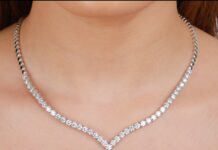Motherhood is the sweetest and sometimes the most difficult phase in any women’s life. For the first time mothers baby feeding responsibility doubles leaving you confused and worried about your baby’s health, hygiene and other baby specific issues. Mother’s milk is best of the baby till he/she is 6 months old. After 6 months you can start with formula feeds, cows milk etc. Babies are very sensitive and get allergies or infections very easily, be very careful while choosing a formula feed for baby.
How To Choose A Baby Formula Feed
Choosing the best formula feed for your baby is a profound decision, as the market is flooded with various baby formula feed options. Formula feeds for baby comes in various forms i.e. concentrate, ready made or powdered. Formula feeds which are based on cow’s milk is pretty popular and healthy for the baby but there are others as well.
It is advisable to consult your pediatrician before starting any formula feed for your baby. If possible check the ingredients offered by the formula like iron or DHA. Here are few tips on choosing formula feed for your baby.
1. Lactose free Formula
Lactose is a form of sugar which is naturally formed in milk, but sometimes baby is unable to digest the sugar in natural milk, so lactose-free formula should be given. It should be given only after doctor’s suggestion.
2. Cow’s milk based formula
It is the most common form of baby formula available. The main ingredient of this formula is cow’s milk but with altered protein. This formula helps babies to digest easily.
3. Soy based milk
The formula is made of plant protein which makes it easier to digest.This formula should be given only if your baby is colic or is unable to digest cow’s milk. It is advisable to consult a doctor before giving soy based formula.
4. Specialized Formula for low weight babies
This formula contains special type of fat called medium-chain triglyceride which are easily absorbed. It also contains more calories and protein to help the baby grow faster.
5. Hydrolyzed formula
This formula is given if the baby have some allergies, colic or is unable to consume required nutrients. It contains protein which is broken in smaller parts making it easier to digest.
6. Human milk fortifier
This formula is made to be mixed with breast milk or to be given alone to meet the special needs of a breastfed baby.
Metabolic formula: This formula is specially designed to meet the special requirement of a baby having any kind of illness/diseases.
Always choose the formula as per your baby needs . Always check with the pediatrician and then choose a formula as per your baby growth, body weight, height etc.
If you have started giving formula to your baby be very cautious. Improper formula can lead to malnutrition and deficiency in babies. Consult the pediatrician before you start any formula for your baby. Given below is a brief insight on how to prepare ready to mix formula for babies.
How To Prepare Ready To Mix Baby Formula
The following baby feeding tips will keep you on top when you are ready to introduce, mix baby formula feeds.
- Hygiene is very important for the baby. So make sure you wash your hands, sterilize the bottle and nipple before preparing a formula.
- All the formula has instruction written on the can. It is advisable to read instructions carefully.
- Boil the water and keep it for some time to cool off. If required urgently mix cold water with hot water and get the desired lukewarm water.
- Put lukewarm water into the baby bottle to make the formula.
- Mix 1 scoop formula with 2 oz of water to prepare formula. Be very cautious while mixing the formula as baby can get sick with improper preparation.
- Make the bottle ready by attaching nipple to nipple ring, now screw the ring into bottle.
- Before feeding the baby, shake the mixture properly. Check the temperature before feeding the baby.
It has been found that some babies are allergic or can”t digest the formula feed in that case it is advisable to go with the cow”s milk . Cow’s Milk is not advisable till the baby reaches her/his first birthday because cow’s milk contains two times more proteins than breast milk making it difficult for baby to digest. Ingredients like sodium, potassium and chloride present in cow’s milk isn’t healthy for the delicate baby. Vitamins and minerals like Vitamin E, zinc and iron required for the infant are absent in cow’s milk.
Bringing cow’s milk into your child’s diet too early may be overwhelming since formula can be very expensive. You can drop formula milk after your baby’s first birthday and introduce cow’s milk. But you can’t start giving cow’s milk straightaway. Here are few tips on how to introduce cow’s milk in your baby’s diet.
How To Introduce Cow’s Milk In Your Baby’s Diet
The next phase in baby feeding is to introduce cow’s milk in your baby’s diet. Here is how you can introduce your baby with cow’s milk.
- Cow’s milk has a different texture, taste, and temperature than breast milk or formula. If you baby is reluctant to make the switch. Try mixing whole milk with some breast milk or formula at first. You can take one part cow’s milk and three parts of formula.
- Once your baby starts liking cow’s milk you can safely introduce cow’s milk. Make sure give whole milk with the benefits of extra fat.
- Notice your baby’s behavior carefully and make sure there are no signs of allergies or reactions.
- Stop formula after a week or two and don’t introduce again. Let the baby like cow’s milk.
- If you notice any problems in your baby’s potty, try introducing semi-skimmed milk before your baby’s digestive system is good enough to handle full fat milk.
- If your child won’t let a drop of milk cross his lips or he can’t tolerate it because of an allergy or your family is vegan, you can serve him puddings, custards, and shakes for snacks. Make his soup with milk rather than water, and add a milk-based sauce or gravy to casseroles.
once you have decided on what milk to be given to the bay the next step is to start bottle feeding your baby. Working women generally start it before 6 months.
Working women often find it to difficult to breast feed their babies due to their hectic schedules and tiring lifestyle. Moreover you can’t breast feed your baby everywhere. Bottle feeding becomes the best option in such cases. Babies formula feed available in the market is close to human breast milk and contain same level of proteins, minerals, vitamins C and iron which the baby requires in early stages.
These feeds are available according to the stage of the baby i.e. 0-3 months feed, 3-6 months feeds etc. containing all the essentials for that particular stage. Theses baby feeds are easy to prepare and much convenient when you are going outside. Here are few basic tips for bottle feeding for baby:
Basic Bottle Feeding Tips For Your Baby
Your baby is responding well to to bottle feeding? Learn what you should keep in mind.
- Before buying formula milk for your baby check for the manufacturing and expiry date on the can.
- Be very cautious about the hygiene. Clean the formula milk can before opening to ensure that the can and the powder remains germ free.
- Opening of the nipples should not be large enough to choke the baby neither small to give in adequate feed. Check the bottle nipple carefully before inserting into your baby’s mouth.
- Boil or sterilize the bottle before use, to ensure germ free feed for the baby.
- Bottle feed your baby by yourself. Babies tend to recognize the person feeding them so bottle feeding yourself will develop a bond with the baby.
- Place the baby in an upright position in the crook of your arm while feeding. This will make the baby feel close to you and will also ensure they don’t swallow much air.
- Dispose of all the left over milk. Never feed the baby again with the left over milk as it may have bacteria and can cause infection to the baby.
- Wash bottle and nipples after every use. If possible boil the bottle and nipple to remove any germs and infections.
I hope all the above tips will help you decide how to feed your baby in most hygienic and efficient manner. We would love to hear your own experiences of baby feeding. Please leave us a comment and share with us.























